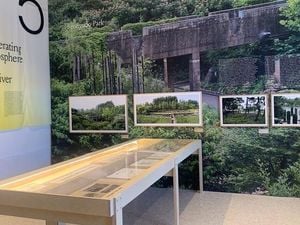At the Consumer Electronics Show (CES) 2025 held last month in Las Vegas, Nvidia made significant strides by showcasing multiple advancements and new products, heralding its continuous leadership role within the AI computing sphere. CEO Jensen Huang, during his keynote address, illuminated this progression, stating, "It started with perception AI — now we're entering the era of physical AI, where AI can proceed, reason, plan, and act." With Chinese company Rethink Robotics, alongside various other prominent partners, Nvidia is advancing AI technologies across numerous sectors, including gaming, robotics, and autonomous vehicles (AVs).
One of the key highlights was the introduction of Nvidia Cosmos, the generative world foundation model platform crafted to boost AI development for autonomous vehicles and robotics. Huang asserted its significance by declaring, "The ChatGPT moment for robotics is coming." This platform utilizes physics-based AI training with synthetic data to minimize the need for expensive real-world testing, thereby democratizing access to advanced robotics.
Among the first adopters of the Cosmos platform are significant players such as Uber, which sees the Cosmos as pivotal for accelerating its humanoid robot advancements. AI capabilities will drive Uber's ability to revolutionize mobility, according to Dara Khosrowshahi, Uber’s CEO, who emphasized: "Generative AI will power the future of mobility, requiring both rich data and very powerful compute." This integration not only proposes a new era of safe autonomous driving but also enhances the operational timelines for AI solutions.
Nvidia's partnership with various robotics firms aligns with its mission to solve data scarcity challenges prevalent within learning environments. Pras Velagapudi, CTO of Agility, reflected on this issue, stating, "Data scarcity and variability are key challenges to successful learning." The company's innovations aim to address this by providing tools for generating and augmenting realistic scenarios through AI-driven modeling.
On the horizon of enterprise-level AI, Nvidia introduced the Nemotron Model Families targeting agentic AI development. Huang elaborated, "Artificial intelligence is entering a new era — agentic AI — where teams of specialized agents can help people solve complex problems and automate repetitive tasks." Companies such as SAP and ServiceNow are on board too, ready to leverage these open large language models (LLMs) to streamline operational efficiencies across numerous sectors.
Huang’s enthusiasm for the GeForce RTX 50 Series GPUs was palpable as he highlighted their AI-driven rendering abilities, commenting, "Blackwell, the engine of AI, has arrived for PC gamers, developers, and creatives." These GPUs are set to transform gaming experiences with more realistic graphics and sophisticated tools for creators, pushing the boundaries of what's possible with game development and digital content creation.
These monumental steps reflect Nvidia's broader objective to interlace AI capabilities across industries, including healthcare, manufacturing, and technology. The foundation AI models now running locally on RTX AI PCs are set to become game-changers for creators and developers, unleashing creativity and enhancing productivity across the board.
Huang concluded his address by underscoring the transformative impact of AI across domains, insisting, "Every software engineer, every engineer, every creative artist — everybody who uses computers today as a tool — will need an AI supercomputer." This echoes Nvidia's commitment to facilitating widespread adoption of AI technologies, ensuring stakeholders can optimize their operations effectively.
Well at CES 2025, Nvidia’s dedicated focus on safeguarding the environment and ensuring ethical AI implementations has not gone unnoticed. The introduction of AI safety measures and the open-source nature of the Cosmos platform showcases Nvidia's commitment to prioritize responsible AI development. All these initiatives solidify Nvidia's standing not just as a tech leader but as a champion of sustainable future innovation.
With promises of continued innovations, partnerships, and dedication to advancing AI, Nvidia is undoubtedly steering the narrative around technology and its transformative impact on our world—a narrative premiering at CES 2025 and beyond.



